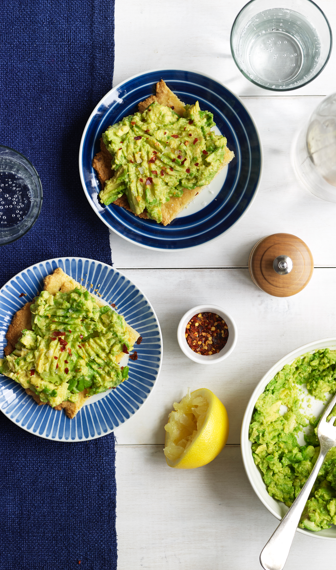It’s no question that the US has been facing an ongoing epidemic—obesity. The Food Research and Action Center reports that more than two-thirds of US adults are obese or overweight (Ogden et al., 2014). This month, Trust for America’s Health Organization disclosed that adult obesity rates have remained high nationwide and no state has experienced a decrease. Are people overeating or eating too much of the wrong foods? While the former may be true, a recently published study supports controlling carb intake, the basis of the Atkins program.
Earlier this month, the Annals of Internal Medicine printed a low-carb study by Dr. Lydia A. Bazzano and other researchers from Tulane University School of Public Health. They studied 148 men and women to observe the effects of limited fat and limited carb intake. For 12 months, 60 participants went on a low-fat diet while the other 59 went low-carb. Dr. Bazzano and her colleagues collected the study participants’ weights and dietary compositions at the beginning of the study, after three months, after six months and at the end of 1 year.
While both groups were allowed to eat vegetables, the low-carb and low-fat diets varied greatly. During the study, those on the Low-Carb diet were limited to 40 grams of carbohydrates per day and encouraged to eat a variety of protein choices, lots of vegetables, healthy fats such as olive oil and avocado, nuts, seeds and their butters, some dairy, and controlled portions of low glycemic fruit such as berries. .
Even though the low-carb diet group ate higher amounts of dietary fat, (they were told to avoid trans fats and emphasize monounsaturated fats, polyunsaturated fats, and saturated fats), the low-carbohydrate diet was more effective for weight loss and cardiovascular risk factor reduction than the low-fat diet.
Those on the low-fat diet ate more grains, cereals and starchy foods. This group consumed less than 30 percent of their daily energy intake from total fat and consumed around 200 grams of carbohydrates per day.
What did the results show? At the end of the study, those on the low-carb diet lost eight pounds more than those on the low-fat diet and had better health outcomes. Dr. Bazzano and her associates concluded that going on a low-carb diet is better than a low-fat one for those wishing to lose weight.
Buzzano notes that “even high-fat diets—if they are high in the right fats—can be healthy and help you lose weight.”
Past studies also support the claim that low-carb diets are more effective than low-fat. In April this year, Dr. Feinman, medical researcher at SUNY Downstate Medical Center, released a research compilation referencing multiple studies to back low-carb diets. In 2007, Dr. Pamela Dyson and other Oxford researchers studied 26 participants assigned to either a low-carb or a “healthy-eating diet.” After three months, those on a low-carb diet saw more weight loss than the healthy-eating diet individuals—15.21 pounds to 4.63 pounds, respectively (Dyson et al., 2007).
Dr. Feinman also references a 2012 study by Portuguese researcher Dr. Santos. He studied 1,141 obese participants on a low-carb diet and compared results to baseline values and low-fat diet results. The results demonstrated “significant decreases in body weight, body mass index, triglyceride levels and blood pressure” (Santos et al., 2012).
While these studies support that low-carb diets lead to successful weight loss, researchers continue to test this theory on different subjects varying in age, gender, socioeconomic background and other factors. From March 2013 through December 2016, Stanford University researchers tested what effects low-carb and low-fat diets have on weight loss between 600 overweight and obese patients with genetic and clinical differences. Other studies to look out for include the Energy Balance Consortium Study, a study on weight-loss maintenance, and Boston Children’s Hospital Study, observing energy expenditure and appetite (Apple, 2014).
From diet pills to skipping meals, resorting to shortcuts will only lead to regaining the weight lost. Controlling carb intake is the scientifically proven method to not only lose weight and keep it off , but will also reduce risk for cardiovascular disease and diabetes, Those looking to start a low-carb diet to lose weight can cut down on carbohydrates by emphasizing high fiber carbohydrates such as vegetables, berries, nuts, and controlled portions of whole grains, while eliminating sugar.
Citations:
Apple, S. (2014). Why are we so fat? The multimillion-dollar scientific quest to find out.WIRED. Retrieved from http://www.wired.com/
Dyson, P.A., Beatty, S., and Matthews, D.R. (2007). A low-carbohydrate diet is more effective in reducing body weight than healthy eating in both diabetic and non-diabetic subjects. Diabet Med., 24, 1430–1435.
Ogden C. L., Carroll, M. D., Kit, B.K., & Flegal K. M. (2014). Prevalence of childhood and adult obesity in the United States, 2011-2012. Journal of the American Medical Association, 311(8), 806-814.
Santos F.L., Esteves S.S., da Costa Pereira A., Yancy W.S., Jr., Nunes J.P. (2012). Systematic review and meta-analysis of clinical trials of the effects of low carbohydrate diets on cardiovascular risk factors. Obes Rev., 13(11): 1048–1066.
The State of Obesity: Better Policies for a Healthier America. (2014, September). Retrieved from http://healthyamericans.org/report/115/

